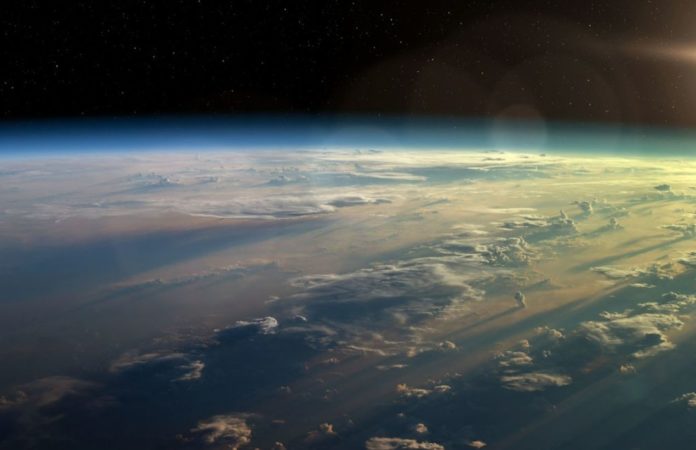The planet’s mesosphere has been cooling at a rate of around 500ft to 650ft per year over the last 30 years, according to data from three NASA satellites. The mesosphere is a layer of the atmosphere that stretches between 30 and 50 miles above the planet’s surface and is much thinner than the troposphere, which we live in. Scientists have linked this alarming trend to the consequences of climate change, and it is projected to continue unless something is done to reduce the planet’s greenhouse gas emissions.
James Russell, one of the study’s co-author and atmospheric scientist at Hampton University in Virginia, said:
“Down near Earth’s surface, the atmosphere is thick.
“Carbon dioxide traps heat just like a quilt traps your body heat and keeps you warm.”
The discovery is concerning because it suggests that more heat from the surface is escaping to the higher atmosphere.
Any heat collected by carbon dioxide (CO2) molecules is lost to space once there, causing the air to chill and contract.
And, because CO2 is so efficient at absorbing heat, more heat is lost to space as a result of increased CO2.
The phenomenon was likened by NASA to a balloon shrinking when placed in the freezer.
This isn’t the only alarming atmospheric discovery discovered by experts.
Lower regions of the planet’s atmosphere have risen by up to 200ft (60m) every year in the last 20 years, according to a recent analysis published in the journal Science Advances.
The discovery was made in the troposphere, which is the lowest layer of Earth’s protective air bubble, by researchers from the University of Toronto in Canada.
The troposphere is vital to life on Earth because it contains the oxygen we breathe and accounts for around 85 percent of the total mass of the atmosphere.
It is also in the atmosphere that most weather happens, clouds develop, and the water cycle delivers rain and snow down.
However, it appears that human activity has also had an impact on this region of the atmosphere.
Typically, the troposphere is warmest at the Earth’s surface, and the temperature declines as one ascend towards the stratosphere.
The ozone layer, which traps heat and causes temperatures to rise again, is home to the ozone layer.
However, scientists are concerned that climate change and the greenhouse effect are disrupting the temperature distribution in the troposphere.
Volcano eruptions and typhoons, according to Jane Liu, an atmospheric scientist at the University of Toronto, can all have an impact on the troposphere’s height.
However, she said: “But in the long run, the two most important factors are tropospheric temperature and stratospheric temperature.”
Since the beginning of industrialization, the unrestricted use of fossil fuels has led global temperatures to rise at an alarming rate.
NASA estimates that the earth has warmed by a little more than 1 degree Celsius (2 degrees Fahrenheit) since 1880, and many models show that global warming will continue unless something is done to reduce greenhouse gas emissions.
Carbon dioxide (CO2) and methane (CH4) are being pumped into the atmosphere, where they trap heat and cause the troposphere to rise.
According to the current study, the troposphere rose at roughly the same rates between 1980 and 2000 and 2000 and 2020 – around 164 feet (50 meters) each decade.
Professor Liu said: “All the observational data over this four-decade period of time tell us the same thing.
“This is a clear, robust and strong indication of the tropopause height increase.”
According to the expert, this might have catastrophic effects for the world.
Changes in the troposphere can have an impact on the amount of water vapour in the atmosphere, which can then have an impact on the Earth’s surface temperatures.
Image Credit: iStock
You were reading: An astounding discovery concerning our planet’s atmosphere causes global doomsday fears
